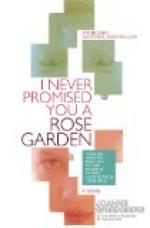“Hard is the heart that loveth naught in May!” Yes, so hard that it is no longer flesh and blood, for under the spell of renewal every grass blade has new beauty, every trifle becomes of importance, and the humble song sparrow a nightingale.
The stars that blazed of winter nights have fallen and turned to dandelions in the grass; the Forsythias are decked in gold, a colour that is carried up and down the garden borders in narcissus, dwarf tulips, and pansies, peach blossoms giving a rosy tinge to the snow fall of cherry bloom.
To-day there are two catbirds, Elle et Lui, and the first Johnny Wren is inspecting the particular row of cottages that top the long screen of honeysuckles back of the walk named by Richard Wren Street. Why is the song sparrow calling “Dick, Dick!” so lustily and scratching so testily in the leaves that have drifted under an old rose shrub? The birds’ bath and drinking basin is still empty; I pour out the libation to the day by filling it.
The seed bed is reached at last. It has wintered fairly well, and the lines of plants all show new growth. As I started to point out and explain, Lavinia Cortright began to jot down name and quantity, and then, stopping, said: “No, you must write it out as the first record for The Garden, You, and I. I make a motion to that effect.” As I was about to protest, the postman brought some letters, one being from Mary Penrose, to whom Mrs. Cortright stands as aunt by courtesy. I opened it, and spreading it between us we began to read, so that afterward Lavinia declared that her motion was passed by default.
“WOODRIDGE,
April 30.
“MY DEAR MRS. EVAN,
“I am going into gardening in earnest this spring, and I want you and Aunt Lavinia to tell me things,—things that you have done yourselves and succeeded or failed in. Especially about the failures. It is a great mistake for garden books and papers to insist that there is no such word in horticulture as fail, that every flower bed can be kept in full flower six months of the year, in addition to listing things that will bloom outdoors in winter in the Middle States, and give all floral measurements as if seen through a telephoto lens. It makes one feel the exceptional fool. It’s discouraging and not stimulating in the least. Doesn’t even nature meet with disaster once in a while as if by way of encouragement to us? And doesn’t nature’s garden have on and off seasons? So why shouldn’t ours?
“There is a quantity of Garden Goozle going about nowadays that is as unbelievable, and quite as bad for the constitution and pocket, as the guarantees of patent medicines. No, Garden Goozle is not my word, you must understand; it was invented by a clever professor of agriculture, whom Bart met not long ago, and we loved the word so much that we have adopted it. The mental quality of Garden Goozle seems to be compounded of summer squash and milkweed milk, and it would be quite harmless were it not for the strong catbriers grafted in the mass for impaling the purses of the trusting.




